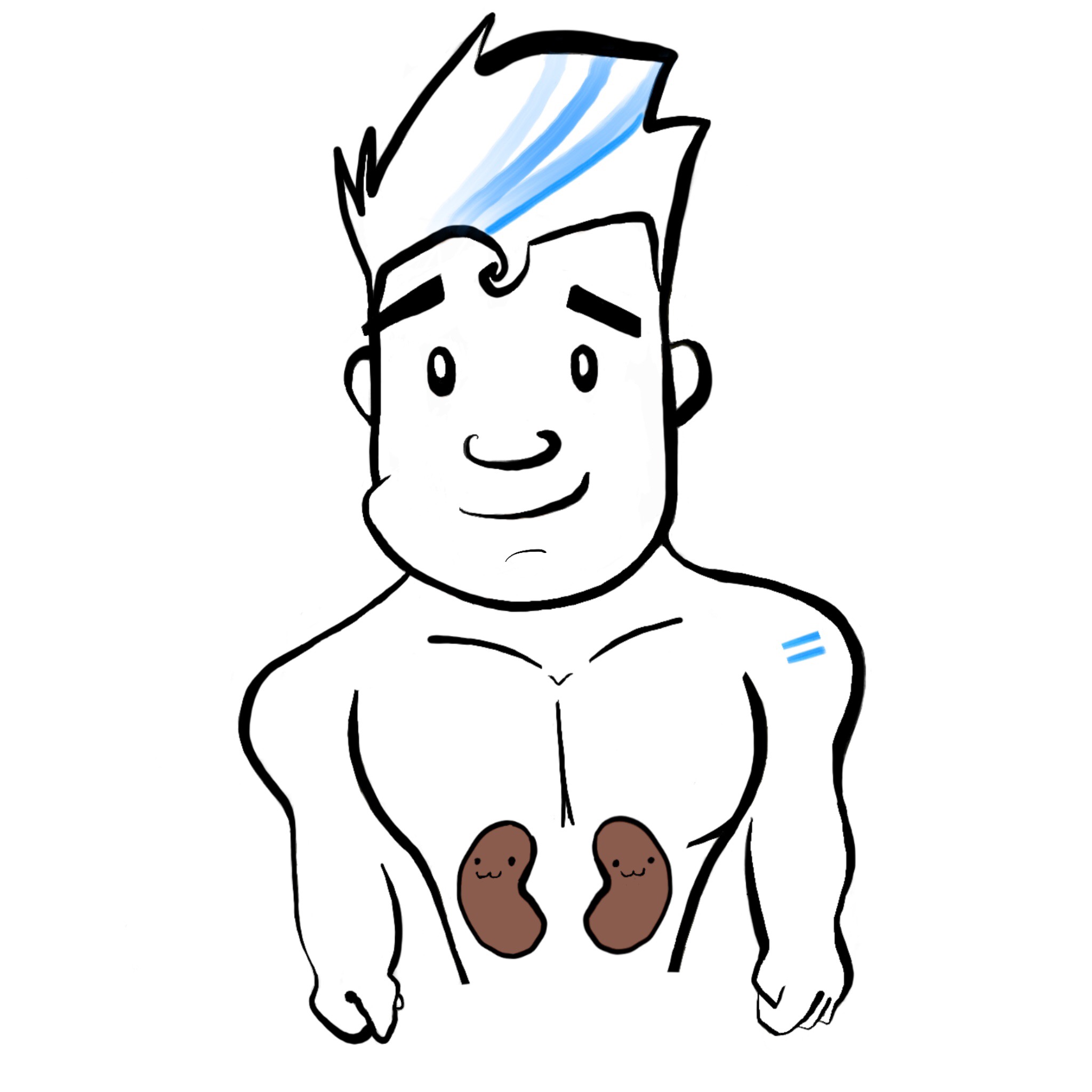
My Kidneys
Kidney Stones
Kidney stones refer to the formation of actual stones in the kidney. These stones are composed of calcium oxalate or calcium phosphate, and less frequently, of uric acid or struvite. These stones may remain in the kidney or pass through the ureter, the tube that connects your kidney to your bladder, and if small enough are peed out. When the stones pass down the ureter they are usually quite painful.
Kidney stones are formed when there are excessive calcium or uric acid levels in the blood, resulting in the high concentration of these chemicals in the urine. When the concentrations are high in the urine these chemicals come together and form stones.
Tiny kidney stones can pass through the urinary system without difficulty. Stones with a diameter greater than 5 millimeters tend to get stuck in the ureters, the tubes that connect the kidney to the bladder. Whenever a stone gets stuck along this path it causes pain. The pain occurs in the back to one side, and may extend down to the groin. It is usually severe and recurs every 30-60 minutes. There may also be blood in the urine.
The diagnosis of kidney stones is best made with an ultrasound or a CAT scan.
The majority of kidney stones will pass through the urinary system on their own over a period of hours to days. If they are small you may or may not notice when you pee them out. When large stones form in the kidney they can block the ureter, which drains urine from the kidney. This is not only painful, but the back up of urine becomes dangerous. For large stones that will not pass, treatment may involve delivering high intensity pulses of ultrasound through the skin to the kidney. This is called Extracorporeal Shock Wave Lithotripsy. These shock waves break up the stone into smaller pieces without harming the kidney. The tiny fragments of stone can then pass down the ureter and are peed out. Multiple treatments may be necessary. Alternatively, surgery may be required. This involves threading a fiber-optic instrument up the penis through the urethra (the tube you pee through), into the bladder, and then into the ureter. The instrument is then able to grasp the stone and pull it out. If the ureter is swollen and pinches shut a similar procedure may be required to place an artificial tube, called a stent, into the ureter to keep it open and allow the urine to drain.
Some people have a genetic tendency to form kidney stones. If members of your immediate family have had kidney stones there is at least a chance you may as well. Diet also has an influence. People who eat large quantities of meat, lots of sugar, or too much sodium (table salt) may be more likely to develop kidney stones. In addition, people with hyperparathyroidism, gout, certain kidney disorders, and Crohn’s disease tend to form kidney stones.
Prevention measures then include staying well hydrated by drinking water, reducing the amount of meat you eat, as well as reducing your intake of sugar and sodium. Uric acid stones may be prevented by taking a uric acid lowering drug called Allopurinol.
A few myths
“People with gallbladder stones tend to get kidney stones.”
This is incorrect. There is rarely a relationship between the formation of gallbladder stones and kidney stones.
“I have kidney stones because of the calcium in my diet.”
There is no evidence that kidney stones are caused by dietary intake of calcium.
“Kidney stones are rare.”
1 in 12 people will experience kidney stones in their lifetime.